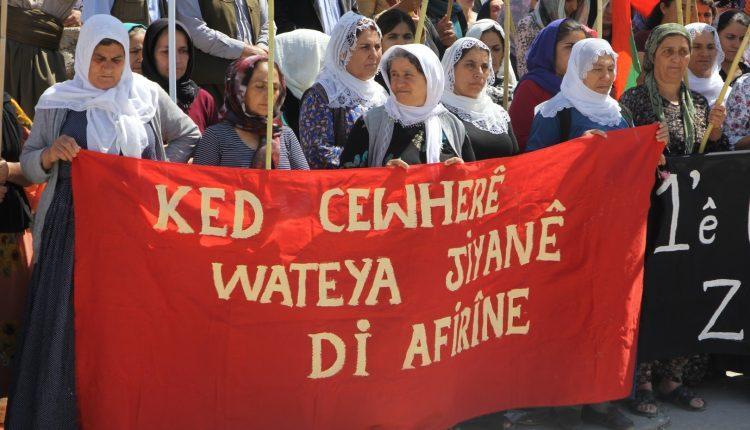
For more than 138 years, people around the world have celebrated the day of struggle of the workers’ movement. For many generations, May 1 has been an expression of the struggle for a better world. On this day, all those who have no illusions about the reality of the capitalist system and who have the courage to change take to the streets. Whether they are workers who still have to toil at their workbenches under degrading conditions and for far too little pay, or young people who do not want to spend their lives in the trenches of the Third World War. Whether they are women who are reduced to commodities under capitalism, or the damned of the earth whose identity is still denied decades after the emergence of national liberation movements, or whose homes may be submerged by the floods of climate change tomorrow.
There were and are plenty of reasons for anger. In 1886, it was the police attacks on the mass strikes at Haymarket in Chicago that led the Socialist International to declare May 1 a day of struggle in memory of those murdered there. With renewed self-confidence and pride, workers began to decorate their neighborhoods with the red flag of socialism. Through newly formed militant organizations, they were now able to stand up to those in power and discuss in circles what life would look like without capitalism. It has also been more than a hundred years since, in the midst of the First World War, women marched through Petrograd with the slogan “Bread and Peace” written on red cloth, signaling the start of the October Revolution and an era of revolutionary change that would shape the history of an entire century.
As internationalists in Rojava, we look back with pride on this rich history and the experiences of the revolutionaries who came before us. We have come from many parts of the world to be part of a revolutionary process that began here over 50 years ago. In Kurdistan, the flag of socialism, which had been thrown to the ground after the collapse of real socialism, was picked up again. This revolution, which is committed to building democratic socialism, sees itself not only in the tradition of numerous resistance movements from Cuba to Angola to Vietnam, but also in the responsibility to learn from the mistakes that have been made.
More and more people today are realizing that the end of history and the final victory of capitalism, which were proclaimed after the collapse of real socialism, can be nothing more and nothing less than a shameless lie. The alternative to socialism, as Rosa Luxemburg already stated, can only be barbarism. The intervention of the Kurdish freedom movement against the plans to reshape the Middle East has, with the Rojava Revolution, created a reality that cannot be denied or destroyed. The alternative to sexism, war, and misery lies in the peaceful coexistence of peoples based on the principles of women’s liberation, ecology, and radical democracy.
In this sense, the call for peace and a democratic society now written by Rêber APO can mark the beginning of a new stage in which even greater efforts will be made to build, through peaceful coexistence, a genuine tenderness between peoples who have been at war with each other for over a hundred years. It is up to us to recognize the necessity and urgency of Rêber APO’s physical freedom, to strengthen his position through our struggle, and to gather around him.
The existing conditions, as is still the case, are man-made. This means that they can also be changed by humans. The flag of humanity and socialism will fly in Kurdistan, and the Rojava Revolution heralds the century of women’s revolution.
With this in mind, we send you our revolutionary greetings from the liberated territories of North-and Eastern Syria. Long live May 1, victory to the revolutionary people’s war in Kurdistan!